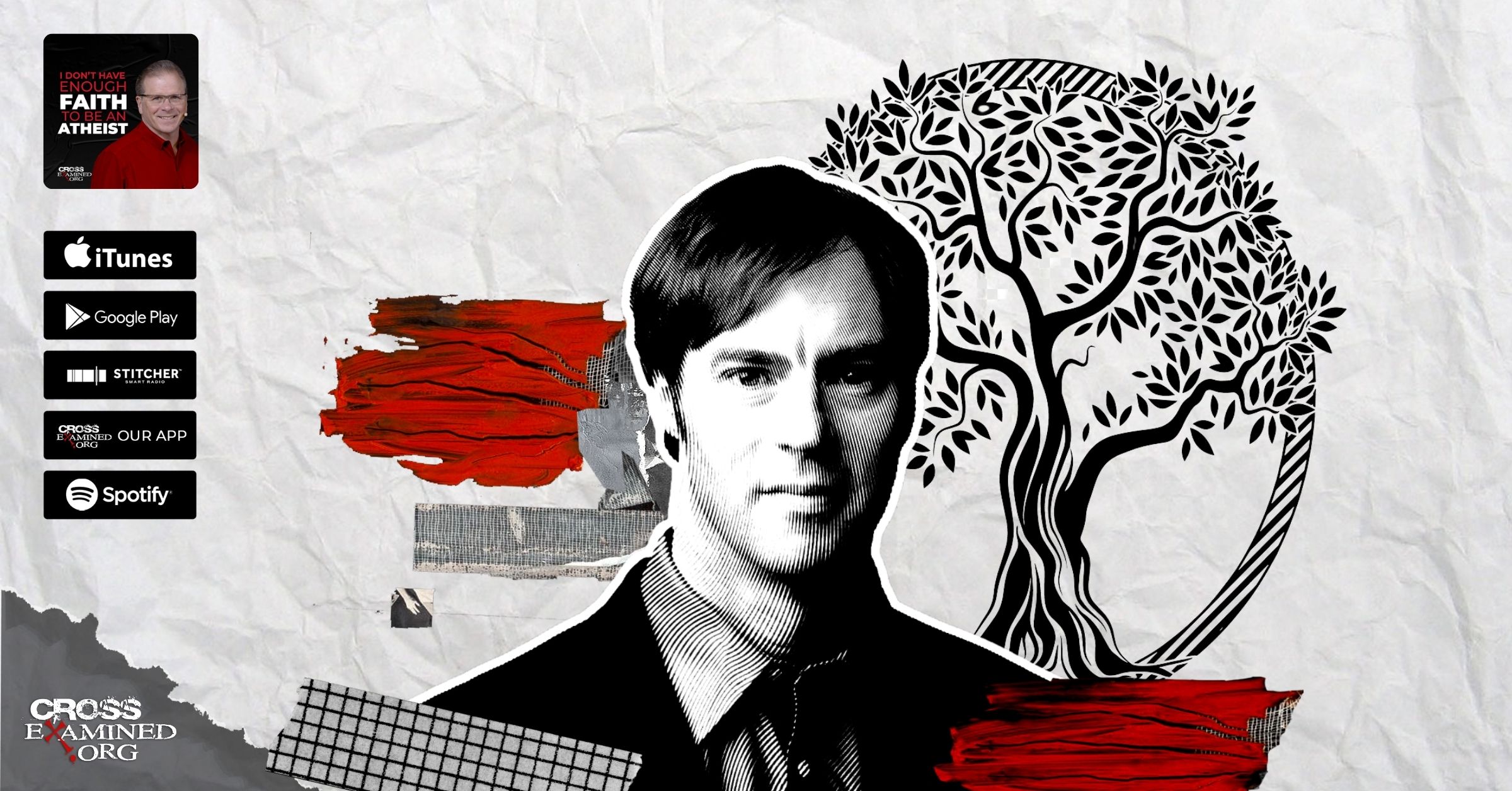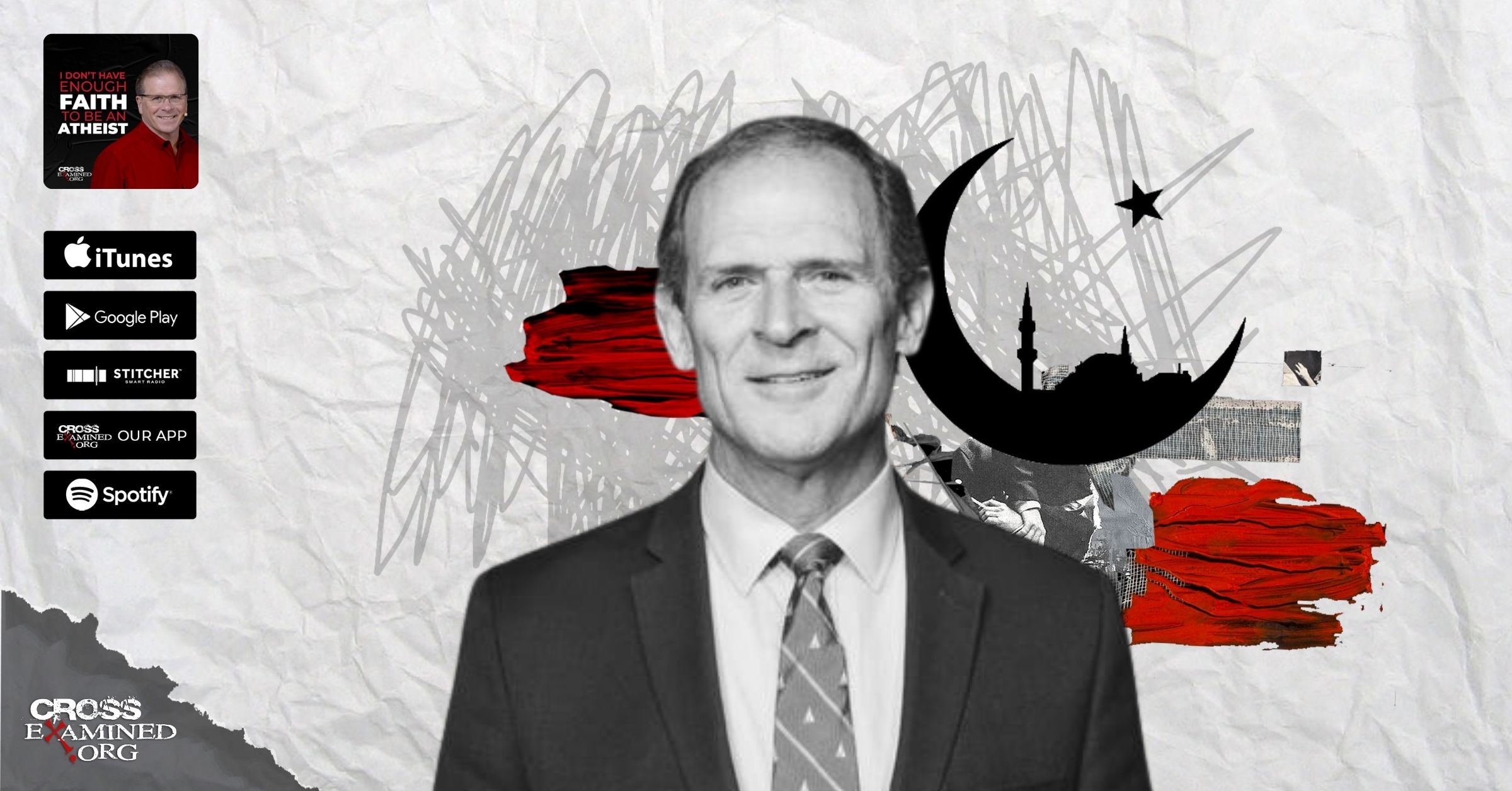By Natasha Crain
My blog and podcast have been quiet since April because I was finishing writing my new book, Faithfully Different: Regaining Biblical Clarity in a Secular Culture.
Faithfully Different is about the fact that Christians with a biblical worldview are now a minority in America and how the secular worldview that surrounds us is putting significant pressure on what we believe, how we think, and how we live. I wrote it to help Christians more clearly understand the fundamental differences between the secular and biblical worldviews, both for the strength of our own faith and for our ability to be salt and light to others. I’m really excited to share it with you! Faithfully Different comes out in February and I’ll be posting pre-order details here in the next few weeks.
In reading that, you might wonder if Christians really are a “minority” in America. I discuss this at length in my first chapter, but here’s the bottom line. About 65 percent of Americans self-identify as Christians—certainly not a minority. But when researchers ask questions about specific beliefs and behaviors, only about 10 percent of Americans have what would be considered a “biblical worldview” (holding basic beliefs consistent with the historic Christian faith and exhibiting corresponding behaviors). Furthermore, researchers have found that not only are those with a biblical worldview now a small minority in America, they’re a small minority within the church.
Now, there are plenty of minority groups that people don’t care much about. I’m sure there are only a handful of people, for example, who eat pickles every morning for breakfast. No one cares. But it’s becoming clear to Christians with a biblical worldview that secular culture does care about our existence…because it hates all we represent.
In a very real sense, we’re increasingly being seen as a small and extreme faction of society.
Understanding Christian “Extremism”
Read or watch anything in mainstream media that mentions “conservative Christians” and you’ll immediately know from the tone that the term isn’t being used as a neutral descriptor. It’s now a pejorative that comes with a knowing nod and eye roll among the supposedly more enlightened culture. (Note that I’m not necessarily talking about conservative in a political sense; in secular usage, “conservative” is a blanket label to reference Christians who disagree with mainstream secular views. There’s often a correlation with politics, but it’s not exclusive to that.)
The implication is that we’re those people—the hold-outs who won’t get on board with where the rest of society wants to go. We’re seen as an impediment to culturally-defined progress because of how different our views are relative to today’s mainstream secularism.
The result is that secularists now see us with various degrees of indignation. As strange as it sounds to many Christians, we’re the new extremists—a minority group whose views are seen as 1) fundamentally different from the “average” view of secular culture and 2) concerning to the rest of society.
When you sense that this is how culture sees us, it can seem pretty bizarre. After all, Christianity has been the dominant religious influence in America for the last 400 years, but now it’s extreme (and concerning) to believe that the Bible is God’s Word?
While there’s no reason to agree with secularists that our views are concerning, there are many reasons to agree that our worldview is extremely different relative to the dominant secular worldview culture now holds. We’re certainly “extremists” in that sense—and should gladly embrace the fact if we fully understand the nature of a biblical worldview.
More specifically, we’re extreme in three major ways.
First, we’re extreme in our source of authority
The most foundational difference between those with a biblical worldview and those with a secular one is our source of authority. Every person, as part of their worldview, has an ultimate authority for what they believe to be true about the world and how they should function within it. For Christians with a biblical worldview, that source of authority is God, and we believe that He’s revealed those truths in the Bible.
In secularism, a person’s source of authority is the self. Secularism isn’t what you get when you simply subtract so-called religious beliefs from a person’s worldview. When you take away the authority of God, you aren’t left with no authority—you’re left with the authority of you.
This difference in authority is at the root of almost every difference between a biblical and secular worldview.
When the vast majority of people’s authority for truth is themselves, it shouldn’t be surprising that Christians are going to come to some very different conclusions about the nature of reality than culture. Even uttering the words “The Bible says…” with the assumption that what follows is objective truth that supersedes personal opinion is extreme relative to today’s average view that the individual reigns supreme.
And for those who assume the Bible is merely a written record of man’s thoughts about God (and nothing more), such extremity is concerning. How can Christians be compelled to follow new societal directions if they don’t view truth as something subject to change? With fellow secularists whose feelings determine truth, society can “progress” through the push and pull of changing popular consensus. But Christians who believe they have un unchanging authority for all time? That’s an infuriating barrier that secularists resent.
Second, we’re extreme in our understanding of morality.
It follows from the first point that Christians with a biblical worldview are going to be at great odds with secularists in matters of morality.
For those whose authority is God and who believe He’s revealed Himself and His will in the Bible, what the Bible says is right or wrong is going to be the final word…regardless of what we think, regardless of what any other individual thinks, and regardless of what society thinks. From a secular perspective, what a stubborn view!
When your authority is yourself, there’s no objective basis for defining morality for all people. In essence, each person is their own God. What’s right or wrong isn’t a matter of what someone else has said—God or not—it’s a matter of what you’ve said.
But wait! Wouldn’t that mean that secularists should accept the Christian view of morality as just one more valid view?
Absolutely.
But they don’t. And this is where secularists fail to live consistently within their own worldview rooted in the authority of the self.
If they were consistent, they’d say this: “Hey, we understand that your Christian view is just as valid as anyone else’s since every individual is their own authority and there’s no objective basis for claiming that anything is right or wrong for all people. But a bunch of us have (fill in the blank) view on (fill in the blank) issue, and we want to try to convince you to change your opinion! Yet even if you don’t change your mind, that’s OK, since everyone’s view is equally valid anyway. Have a great day.”
Instead, they’re saying this: “The (fill in the blank) view on (fill in the blank) issue is the objectively right view for all people, and if you disagree, you’re wrong…and evil.”
Without an objective basis for morality from a higher-than-human moral lawgiver, the closest thing secularists can have as a moral standard that applies to all people is popular consensus. That’s why it’s so important for secular culture to continually push their views of morality through every conceivable channel—education, media, entertainment, business, and more. The more people get on board with any given view of morality, the more the popular consensus is achieved, and the more secularists have a new supposed standard for what’s right.
But once again, Christians with a biblical worldview aren’t subject to that shift. No matter how prevalent any new idea of morality is, if it conflicts with what Christians believe God Himself has said, the popular consensus won’t become our new standard. And that “extreme” viewpoint relative to average culture is mind-numbingly frustrating to nonbelievers.
Third, we’re extreme in believing that judgment can be objectively valid.
This point follows from both of the prior points. Because Christians look to God and His word as the source of authority for our lives, and because views of morality are an outworking of those beliefs, Christians believe that judgment on matters of truth can be objectively valid—not just a matter of opinion.
In Faithfully Different, I describe the tenets of a secular worldview this way: Feelings are the ultimate guide, happiness is the ultimate goal, judging is the ultimate sin, and God is the ultimate guess. Judging is the greatest sin in secularism because when feelings are your guide and happiness is your goal, no one has the ability or right to tell you what only you can know (how you feel and what makes you happiest). From the worldview perspective that the authority is the self, it’s absurd and insulting for someone else to come along, look at a person’s life journey, and claim to know better than they do how they should or shouldn’t be living.
But that assumes there’s no God who has provided a reliable and authoritative source for that information.
From a biblical worldview perspective, God has provided that in the Bible. And if the God of the universe has told us what’s true about reality, it’s not absurd or insulting to share what He’s said—it’s literally the only reasonable thing to do given that the God who created everything would assuredly know more than any human.
Jesus never said that the world would understand us. To a large degree, secular culture’s views here are to be expected. What concerns me far more is when Christians don’t understand how extremely different a biblical worldview should be from a secular one. In many ways, secularists who think those with a biblical worldview are extreme relative to average society understand this more than self-professed Christians who see only marginal differences.
When we truly have a biblical worldview, we should understand that we really are “extremists” in today’s culture…and embrace it. Not only is it okay to be extreme in this way, it’s beautiful—because it’s what God Himself calls us to.
Recommended resources related to the topic:
Stealing From God by Dr. Frank Turek (Book, 10-Part DVD Set, STUDENT Study Guide, TEACHER Study Guide)
Jesus, You and the Essentials of Christianity by Frank Turek (INSTRUCTOR Study Guide), (STUDENT Study Guide), and (DVD)
Legislating Morality: Is it Wise? Is it Legal? Is it Possible? by Frank Turek (Book, DVD, Mp3, Mp4, PowerPoint download, PowerPoint CD)
Is Morality Absolute or Relative? by Frank Turek (DVD/ Mp3/ Mp4)
Was Jesus Intolerant? (DVD) and (Mp4 Download) by Dr. Frank Turek
__________________________________________________________________________________________________________________________________________________
Natasha Crain is a blogger, author, and national speaker who is passionate about equipping Christian parents to raise their kids with an understanding of how to make a case for and defend their faith in an increasingly secular world. She is the author of two apologetics books for parents: Talking with Your Kids about God (2017) and Keeping Your Kids on God’s Side (2016). Natasha has an MBA in marketing and statistics from UCLA and a certificate in Christian apologetics from Biola University. A former marketing executive and adjunct professor, she lives in Southern California with her husband and three children.
Original Blog Source: https://cutt.ly/2QJ0e0X










